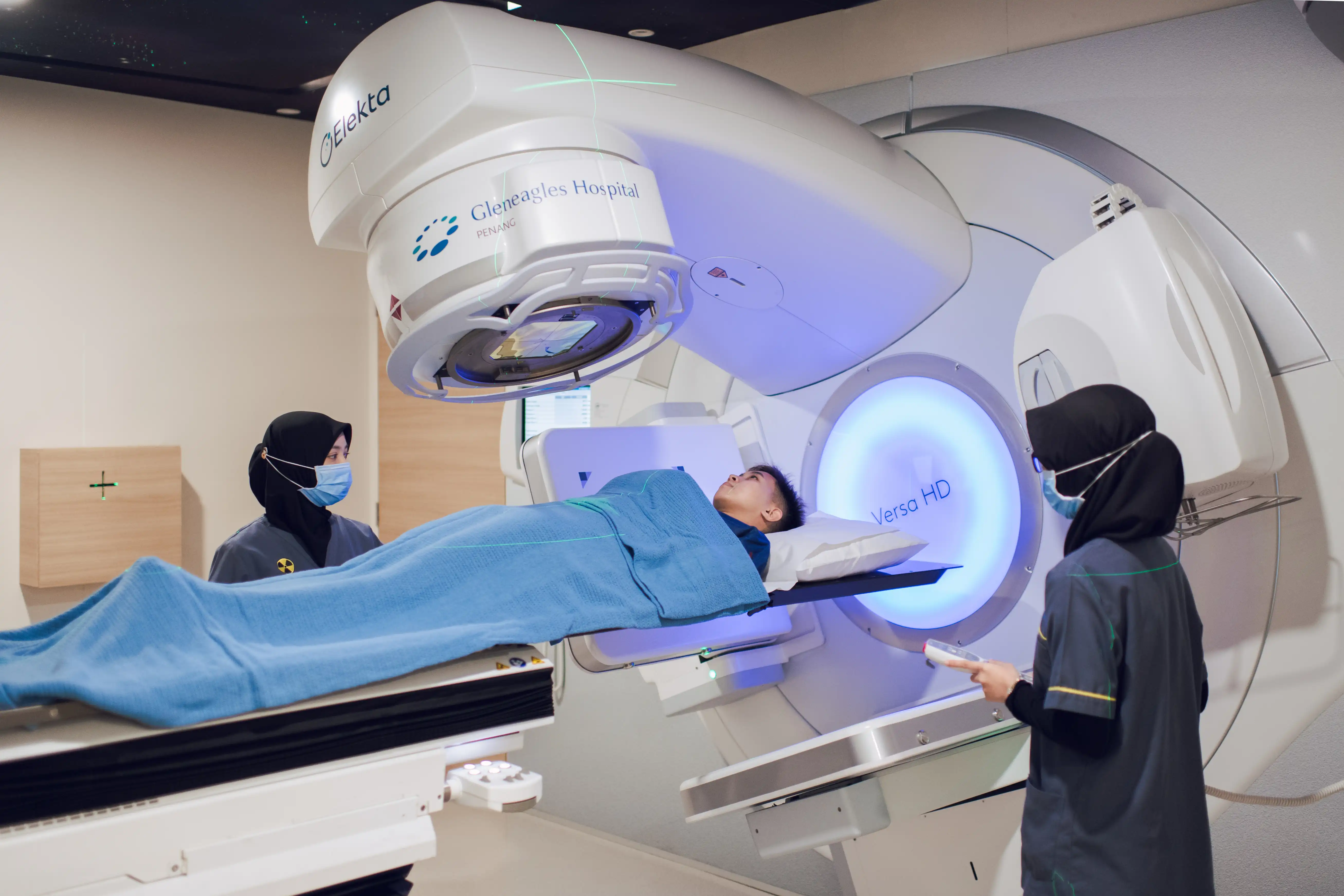Tonsil Cancer: Risk Factors, Symptoms, Diagnosis, Treatment
Tonsil cancer is a common form of oropharyngeal malignancy. Its incidence is sharply rising due to the increasing prevalence of human papillomavirus (HPV)-induced cancers. The presence of HPV can dramatically alter the prognosis of tonsillar cancer.

Tonsil cancer begins when cancerous cells develop in the tonsils, forming tumours or lesions. It can occur in people who have had their tonsils removed, as some tonsil tissue may remain after surgery. Drinking alcohol, smoking, and carrying HPV appear
to increase the risk of getting tonsil cancer.
The American Cancer Society reported that about 1 in 60 (1.7%) men and 1 in 140 (0.71%) women are at risk of developing oral cavity and oropharyngeal cancer in their lifetime. Another study found that tonsils are the most common site for oropharyngeal
cancer, with 23.1% of all cancer cases detected in this region.
Risk factors of tonsil cancer
Known risk factors of tonsil cancer include:
- Tobacco usage
- Heavy alcohol intake
- HPV infection - there is some evidence that tonsil cancer is related to the human papillomavirus (HPV), a common virus associated with sexual contact
Signs and symptoms of tonsil cancer
Many people with tonsil cancer may not notice any symptoms even after they are diagnosed. The major symptom of tonsil cancer is having one tonsil larger than the other. Another common symptom is a persistent sore throat. It is not uncommon for the
first symptom to be a lump in the neck.
Other symptoms may include:
- Ear pain, especially on the same side as the affected tonsil
- Difficulty swallowing, chewing, or speaking
- A persistent sore or ulcer in the back of the mouth
- A sensation that something is caught in the back of your throat
- Jaw stiffness
- Bad breath
- Bleeding from the mouth – very rare
Having one or more of these symptoms does not mean you have tonsil cancer. Several non-cancerous problems cause the same symptoms.
It is important to see a specialist if you have a tonsil infection that does not get better with antibiotics or unexplained ear pain that does not go away.
Diagnosis of tonsil cancer
The diagnosis for tonsil cancer would start with an examination of your throat and neck. The doctor might feel your neck for lumps and perform a laryngoscopy, where a thin tube with a camera and light is passed down your throat to check if there is
anything out of the ordinary.
If any abnormal areas are found, a sample of cells might be biopsied for lab testing to look for cancerous cells. You may also have imaging tests like computerised tomography (CT), magnetic resonance imaging (MRI), or positron emission tomography
(PET) scans done.
Learn more about the different types of screening and diagnostic procedures performed to diagnose tonsil cancer.
Treatment options for tonsil cancer
- Surgery may be needed to remove the cancer cells. Surgeons might be able to access small cancers through the mouth. Larger cancers might require opening up the neck.
- Radiation therapy may be used to shrink a tumour or stop its growth. It is used after surgery if the cancer cannot be removed completely or if there is a risk that the cancer may have spread to the lymph nodes. Radiation can also
be combined with chemotherapy as an initial treatment or as an additional treatment after surgery.
- Chemotherapy uses drugs to kill cancer cells, or to slow cancer growth during a recurrence or metastasis (where cancer cells spread to other areas of the body).
- Rehabilitative services include speech therapy, swallowing therapy, nutritive advice, physical therapy and occupational therapy after surgery or radiation.
Learn more about the different types of treatment technologies to treat tonsil cancer.
Prevention of tonsil cancer
- Quit smoking and avoid second-hand smoke.
- Limit alcohol intake, drink moderately.
- Vaccinate against HPV and practice safe sex.
- Attend dental check-ups regularly to detect signs of cancer and precancerous changes.
Detect to Protect!
No routine screening test for oral cavity and oropharyngeal cancers is available. Nevertheless, routine oral exams by a doctor or dentist can detect mouth cancer or pre-cancerous lesions that may lead to cancer at an early stage for timely treatment.
Monthly self-exam of the oral cavity is also recommended for people at higher risk of these cancers, especially those who smoke or drink alcohol routinely.
Make an appointment at Gleneagles Hospitals
If you are experiencing any of the symptoms of tonsil cancer,
get in touch with us to find out more about our Oncology Services at your nearest Gleneagles Hospital.
Gleneagles Hospital works with oncologists to assist patients through cancer treatment. The caring and multidisciplinary team of healthcare professionals are available for consultation and to provide the best care.












